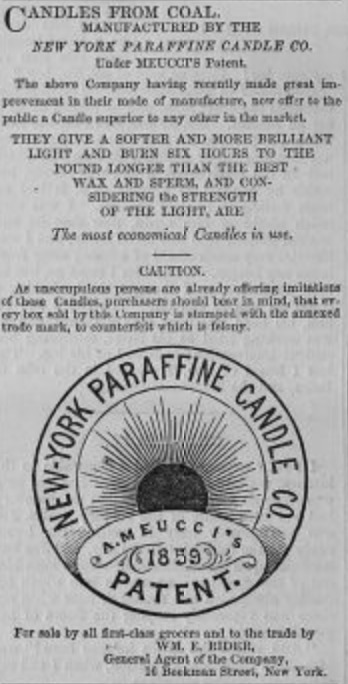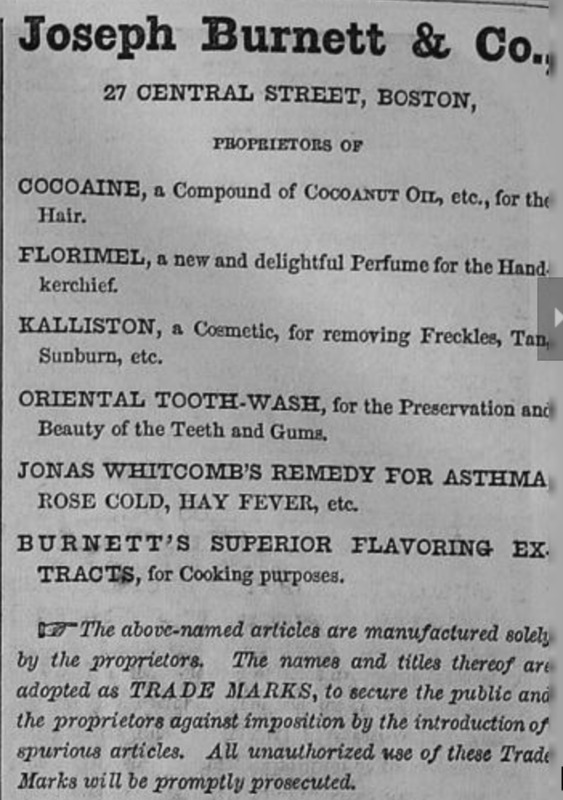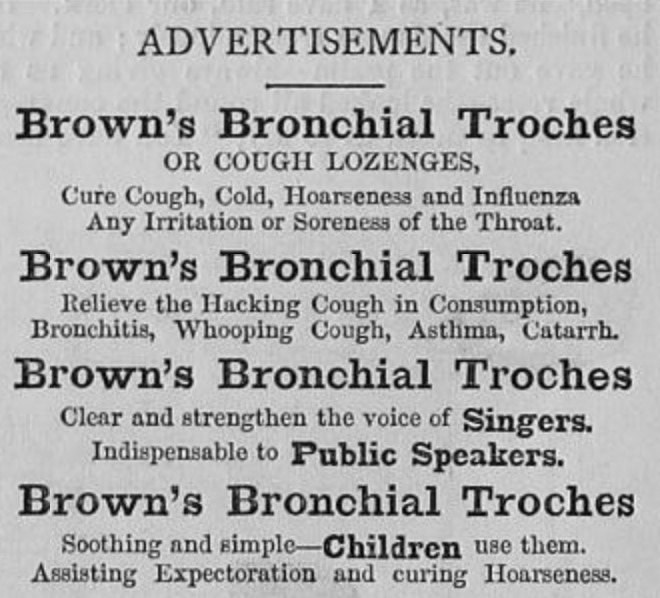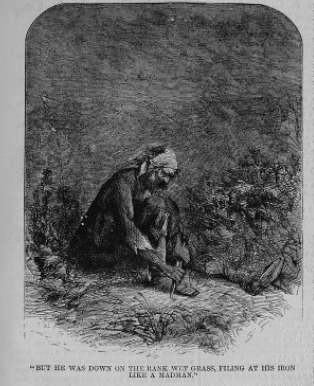Part 2
Introduction
We will be overlooking the work of Chapters 3 and 4 — December 8 1860, within Great Expectations by Charles Dickens. Chapter 3 showcases Pip going back into the marshes to bring the criminal what he asked for. The themes and overall feelings of the chapter were that of coldness, damp, dreary, heavy, dirty, gross, and very intense feelings of guilt and fear from Pip. Chapter 4 focuses on guilt and fear as well, but it is taken place within the Pip’s home, primarily during a meal with Mrs. Joe, Joe, multiple guests, and himself. Whereas chapter 3 is set in a dirty, gross, cold setting, chapter 4 is set in a clean, warm, safe setting. Those at the table are dressed finely and cleanly. We will be pulling from both chapters within Harper’s Weekly, and most of the items are advertisements following the 4th chapter. As well, we will be referencing David Churchill’s book Crime Control and Everyday Life in the Victorian City. It is important to briefly mention the differences between Great Expectations Chapters 3 and 4 within All The Way Round (UK) and Harper’s Weekly (U.S) — All The Way Round has no advertisements or illustrations near either chapters, allowing the reader to really focus their attention on the actual story. Harper’s Weekly has advertisements, other stories, and illustrations surrounding the chapters. This makes it more difficult to focus solely on the story, without being pulled into consciously or subconsciously into the other things that are going on within the pages. Otherwise, they both format the story in columns and very small font sized text. Society’s fear of crime and the feelings surrounding crime is hyperactive within the advertisements in Victorian era England, and affects the contexts of our reading of Great Expectations. It affects the reading because it can shift our mindset into the ones that the readers during the time of original publications were thinking and feeling, and the fear surrounding crime as it grew.

New-York Paraffine Candle Co.
This is an advertisement following Chapter 4 of Great Expectations within Harper’s Weekly. It is an advertisement for candles, “Candles from coal”, manufactured by the New-York Paraffine Candle Co. The ad promises that “they give a softer and more brilliant light and burn six hours to the point longer than the best wax and sperm, and considering the strength of the light, are The most economical Candles in use.” It also lets consumers know that the candles are for sale by all first-class grocers. (add something from source here) However, what is exceptionally interesting is the caution section within the ad: ‘As unscrupulous persons are already offering imitations of these Candles, purchasers should bear in mind, that every box sold by this Company is stamped with the annexed trade mark, to counterfeit which is felony.’ When you think of what would be under the title ‘caution’ on an ad for candles, you would assume the caution would be to not leave with the candle still burning, do not let children near the candle, etc. So it is superbly interesting that the caution is to warn those about committing a felony. This makes such a comment on the views around crime and criminals within this time period, as we can see by example through the immense guilt and stress Pip endures in chapter 4 after having just helped a criminal and stole from his sister: “I have never been absolutely certain whether I uttered a shrill yell of terror, merely in spirit, or in the bodily hearing of the company. I felt that I could bear no more, and that I must run away. I released the leg of the table, and ran for my life” (Dickens 66). This context affects the reading of chapters 3 and 4 by making the reader hyper aware of criminal activity — they have just read about a criminal and their behaviours, and then to put a cautionary warning in the middle of an advertisement for candles just reinforces the intense reproach in the mere thought of crime. Justifiably so, as you should not commit crime of course, but it is interesting that there is an ad that is deliberately anti-crime right after a chapter about crime. When speaking about the preventative strategies one make take against crime, “Integral to this strategy was the propagation of a ‘preventative mentality’ — a cautionary, consequential approach towards the security of one’s belongings — which would promote civilian initiative in crime prevention, supplementing police initiatives which we have seen were limited in several respects” (Churchill 138).

Joseph Burnett & Co.,
This is an advertisement within Harper’s Weekly for Joseph Burnett & Co.. the owners of cocoaine, florimel, kalliston, oriental tooth wash, Jonas Whitcomb’s Remedy for Asthma, and Burnett’s Superior Flavouring Extracts. All of these products, with the exception of perhaps the last 2, are for the cleanliness of oneself, the pretty-ing of oneself — hair products, perfume, mouth wash. Products that enhance the quality of your life in terms of the level of “gentleman” you are. Joseph Burnett, just like New-York Paraffine Candle Co., issues a warning in the middle of the advertisement: ‘The above named articles are manufactured solely by the proprietors. The names and titles thereof are adopted as TRADE MARKS, to secure the public and the proprietors against imposition by the introduction of spurious articles. All unauthorized use of these Trade Marks will be promptly prosecuted.’ If we look at the way in which the feelings differ between chapter 3 and 4, from dirty to clean; unsafe to safe; issue to solution (kind of), we can see how the advertisement contributes the the enunciation of those feelings. Kalliston, for example, ‘a Cosmetic, for removing Freckles, Tan, Sunburn, etc.’. a solution to your issue, a ‘clean’ for your ‘dirty’. It advertises for everything you want to be, and reminds you of everything you do not want to be. It pushes the reader away from crime, propagates the fear against crime, plucking out its surrounding characteristics and then marketing solutions to the physical qualities that remind you of criminals that you may have. It then drives it home by putting the reminder of legalities regarding the trademarks of the products. When speaking on how society views criminals, “they were a race“sui generis,” different from the rest of society, not only in thoughts, habits, and manners, but even in appearance; possessing, moreover, a language exclusively their own” (Churchill 88). As we will see, the criminal depicted in Great Expectations is drawn a specific way, one in which plays into this notion that Churchill describes, working in tandem with Joseph Burnett & Co.’s mission of upgrading ones physical look.

Brown's Bronchial Troches
This is an advertisement for Brown’s Bronchial Troches within Harper’s Weekly. It is an ad for the improvement of one’s health, and one’s quality of life. It claims it can cure cough, cold, hoarseness, influenza, any irritation or soreness of the throat; relieve the hacking cough in consumption, bronchitis, whooping cough, asthma, catarrh; as well as clear and strengthen the voice of singers, and is indispensable to public speakers. Browns Bronchial Troches offers a product that will restore any lowered health levels, AND support, aid, and lift up singers and public speakers, both of those being seen as lucrative in the age and a sign of intelligence and upper class. This works similarly to the previous advertisements, in pushing the consumer towards a more ideal society, one that is clean, healthy, prosperous, affluent. One can make the argument that the context of the setting and story of Great Expectations, the reader of Harper’s Weekly can make the parallel between illness and the criminal, since he is weak, limps, is disheveled, etc. Therefor, by advertising for the removal of illness from oneself, the reader may also subconsciously or consciously be reading the ad as a way to remove any characteristics of crime from themselves. We can see an example of it within Great Expectations, “And yet this man was dressed in coarse grey, too, and had a great iron on his leg, and was lame, and hoarse, and cold, and was everything that the other man was” (Dickens 54). We can relate this back to the passage within Churchill’s book that was mentioned previously on how criminals were different from the rest of society in their appearance, thoughts, manners, habits (Churchill 88).

"BUT HE WAS DOWN ON THE LITTLE RANK WET GRASS, FILING AT HIS IRON LIKE A MADMAN."
This is an illustration by John McLelan within Harper’s Weekly that showcases a scene from chapter 3 of Great Expectations. It is captioned “But he was down on the rank wet grass, filing at his iron like a madman.” The drawing is of the criminal sitting in the dark, on the wet grass, looking dirty and disheveled. His clothes are torn and his hair is wild, and he has a handkerchief/scarf wrapped around the top of his head. His face looks grimacing and the shading of the illustration is very dark, making the figure look frightening. This is also the last illustration that readers get before they get bombarded by ads on the following page, and it feels like a very clever place to put an illustration of a disheveled, scary looking man. This man almost represents an image of the person you do not want to be, or the person that the advertisements are trying to make you feel like you are without their product. Or, fear the man in the illustration and what his life is, labeled as a mad man, and fear becoming like him yourself. “The man took strong sharp sudden bites, just like the dog. He swallowed, or rather snapped up, every mouthful, too soon and too fast; and he looked in every direction, of somebody’s coming to take the pie away. He was altogether too unsettled in his mind over it, to appreciate it comfortably […] In all of which particulars he was very like the dog” (Dickens 56). Therefor, when you see the caution signs we saw in the first two advertisements, you are fearful to even consider doing anything illegal, especially when it draws so much attention to it.
Conclusion
This page covered chapters 3 and 4 within Great Expectations, released within Harper’s Weekly on December 8th 1860. Chapter 3 worked to illustrate Pip going back into the marshes to bring the criminal he stumbled upon food, some supplies, and liquor. Chapter for focused on guilt and fear, and took place within Pip’s home during a meal with his family and guests. The overarching themes and feelings of the chapters are coldness, dreary, heavy, dirty, gross, guilt, and fear. We covered 3 advertisements and 1 illustration within Harper’s Weekly that influenced our reading of the chapters, and gave context clues as to how the readers during that time period were being affected by the paratexts. We worked to showcase that society’s fear of crime and the feelings surrounding crime was hyperactive within the advertisements in Victorian era England, and affected the context of the reading.
Work Cited
Churchill, David. Crime Control and Everyday Life in the Victorian City : the Police and the Public. First edition., Oxford University Press, 2017.
Dickens, Charles. Great Expectations. Edited by Graham Law and Adrian J. Pinnington, Broadview Press, 1998.
“Harper's Weekly: Bonner, John, 1828-1899: Free Download, Borrow, and Streaming.” Internet Archive, New York: Harper & Brothers, 1 Jan. 1970, https://archive.org/details/harpersweeklyv5bonn/page/414/mode/2up?view=theater.